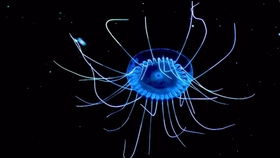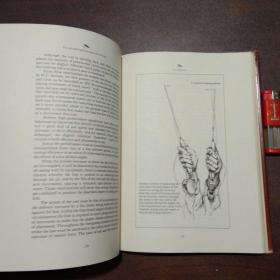
Content:
Fishing in a wild pond can be an exhilarating experience, offering a unique blend of tranquility and excitement. Whether you are a seasoned angler or a beginner, there are several essential techniques that can help you master the art of fishing in a wild pond. In this article, we will explore some of the most effective strategies to help you catch more fish and enjoy your time on the water.
Choose the Right Equipment
The first step in successful fishing is to select the appropriate equipment. Here are some essential items to consider:
- Rod and reel: A lightweight, flexible rod with a matching reel is ideal for pond fishing. Choose a rod length between 6 to 7 feet for a good balance of sensitivity and casting distance.
- Line: Use a monofilament line with a thickness between 4 to 6 pounds. This line offers a good balance between strength and flexibility.
- Lures and baits: For wild pond fishing, a variety of lures and baits can be effective. Live bait, such as worms, minnows, and leeches, can be particularly appealing to fish. Artificial lures like spinners, crankbaits, and jigs can also attract fish.
- Tackle box: Keep essential tackle items, such as hooks, sinkers, swivels, and split shots, in your tackle box for quick access.
Scout the Pond
Before casting your line, take some time to explore the pond. Look for areas with dense vegetation, fallen trees, and underwater structures, as these locations can provide good fishing spots. Observe the behavior of fish in the pond and note their preferred feeding areas. This information will help you determine the best spots to cast your line.
Timing is Key
Fish are most active during certain times of the day. Here are some general guidelines for optimal fishing times:
- Early morning and late evening: Fish are often most active during these times, as the cooler temperatures and reduced light intensity mimic natural feeding conditions.
- Overcast days: Fish may be more active on overcast days, as they are less likely to be spooked by bright sunlight.
- During and after rain: Fish tend to be more active and more likely to bite after a rainstorm, as the increased oxygen levels in the water can attract them.
Patience and Persistence
Fishing requires patience and persistence. Don't get discouraged if you don't catch fish immediately. Remember that fish can be unpredictable, and it may take some time to find the right spot or technique. Keep experimenting with different lures, baits, and techniques until you find what works best for the fish in the pond.
Be Mindful of the Environment
When fishing in a wild pond, it's essential to be mindful of the environment and the local regulations. Here are some tips to help you be a responsible angler:
- Follow local fishing regulations, such as bag limits and size limits.
- Keep your distance from other anglers to avoid spooking fish.
- Dispose of trash properly and leave the pond cleaner than you found it.
- Be aware of wildlife and other pond users, such as swimmers and boaters.
By following these techniques and tips, you'll be well on your way to mastering the art of fishing in a wild pond. Remember that success in fishing often comes down to practice, patience, and a bit of luck. With time, you'll develop your own unique strategies and become a more skilled angler. Happy fishing!












